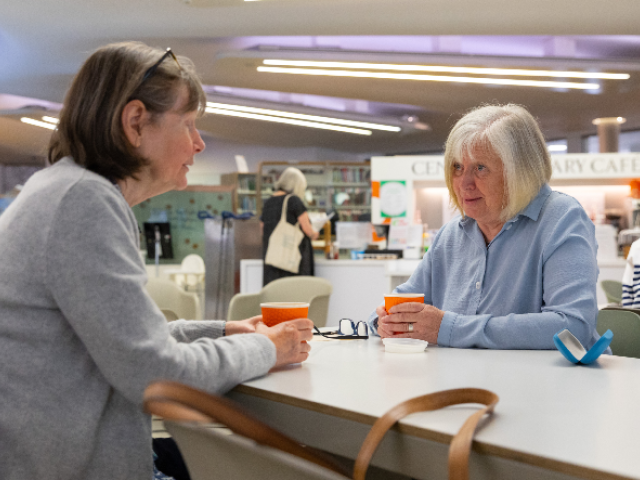South East libraries deliver millions in value through support for mental health and wellbeing - report
A groundbreaking new report from charity Libraries Connected shows that public libraries deliver millions in value by supporting mental health and wellbeing, particularly among older people.
For the first time, the report uses the Treasury’s green book – official guidance which aims to ensure value for money in public spending - to measure the economic impact of three core library activities: weekly arts and crafts sessions for over-65s, volunteering opportunities and activities that reduce loneliness.
Commissioned by the South East regional network of Libraries Connected, the research was carried out by public policy consultancy Shared Intelligence. Data was collected over 12 weeks in summer 2025 from 12 of 21 South East library services, covering around 75% of the region’s 9.7 million population. Using Treasury-approved methods, the team calculated the monetary value of the activities - including NHS savings, productivity gains and the personal value placed on improved wellbeing.
Key findings
- Weekly arts and craft sessions for older people generate at least £491k each year in health and wellbeing benefits across eight services, using a valuation of £109 per person per week based on quality of life improvement.
- Library volunteering generates £342k in wellbeing value annually across 11 library services, reducing isolation and boosting life satisfaction. This is based on a valuation of up to £396 per person per year - the estimated cost for health and care services to deliver the same benefit.
- Loneliness reduction activities generate £913k in health, productivity and wellbeing value each year across six services, based on 356 participants - 123 of whom (34%) reported feeling less lonely. The small sample size means the true regional impact is many times greater.
These figures are conservative estimates, based on real attendance and participation data.
The project also carried out detailed interviews, capturing the voices of older library users and which further demonstrates the positive impact libraries have. One participant described her knitting group as “a reason to get up in the morning”, while another said her book club helped her “realise that life is out there, and tomorrow is probably going to be a better day”.
The research marks a breakthrough in presenting library value in terms that align with government decision-making. As the government prioritises prevention across public services, the report shows how libraries effectively help reduce pressure on adult social care by offering early, low-cost support and intervention in the community.
Alongside the research, Libraries Connected is publishing a toolkit to allow library services across the country to apply the methodology to their own activities.
Isobel Hunter MBE, chief executive of Libraries Connected, said:
"As the budget approaches, this research makes the case for libraries in clear economic terms. They reduce loneliness, support mental health and ease pressure on other, more expensive, public services - delivering exceptional value for money. The findings show why libraries should be recognised as one of the most effective preventative services available to policymakers."
James Pearson, Chair of Libraries Connected South East and Head of Libraries, Registration & Archives at Kent County Council, said:
"Those of us delivering library services understand the positive impact they have on people’s lives but it’s essential that we demonstrate that impact, which is why the South East Libraries group commissioned this study. The findings speak for themselves – they highlight the vital role libraries play at the heart of communities, reducing pressure on health and social care. I hope this report encourages service designers and policymakers to consider libraries as an integral part of preventative service design."
For media enquiries and interviews please contact media@librariesconnected.org.uk
To access the toolkit for your library service please contact chad.bentley@librariesconnected.org.uk
The power of prevention: summary report
For detailed methodology, references and interviews, see the full report.
Events
Webinar: The Economic and Social Value of Library Activities for Older People
Join us for an exclusive webinar sharing the findings of recent research commissioned by the Libraries Connected South East network and conducted by Shared Intelligence, plus a preview of a brand n
Read more about Webinar: The Economic and Social Value of Library Activities for Older People

